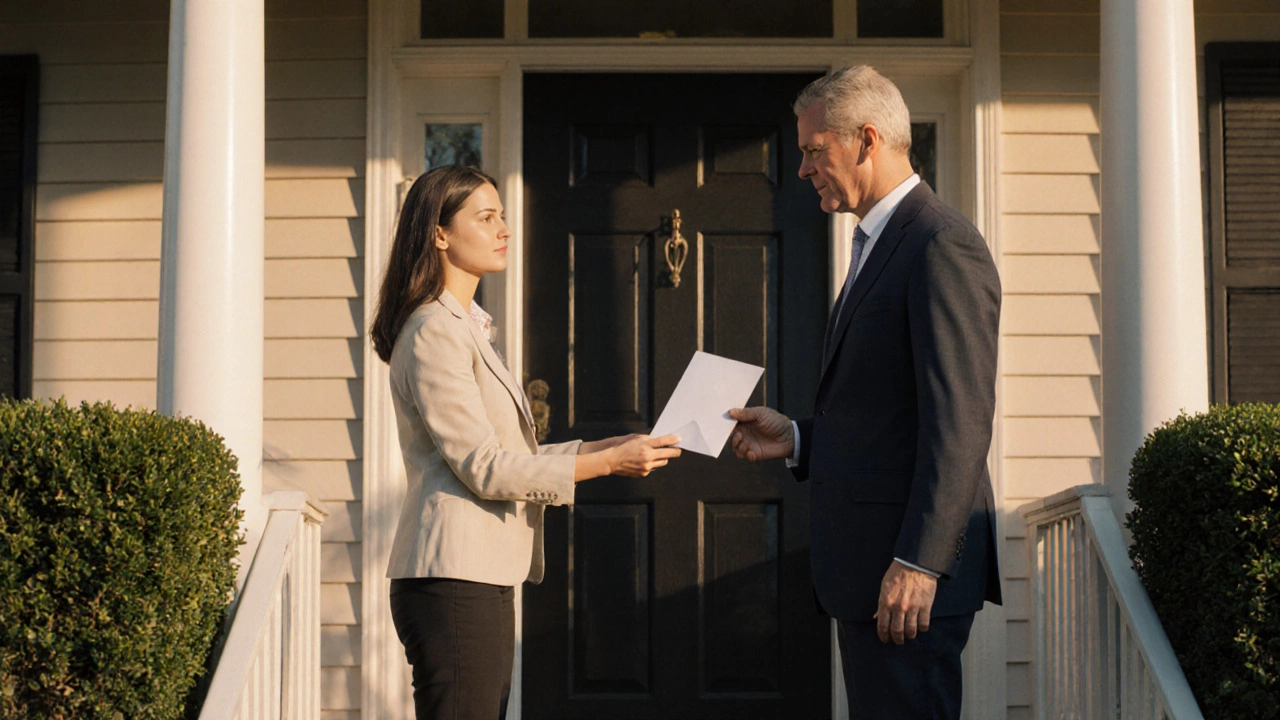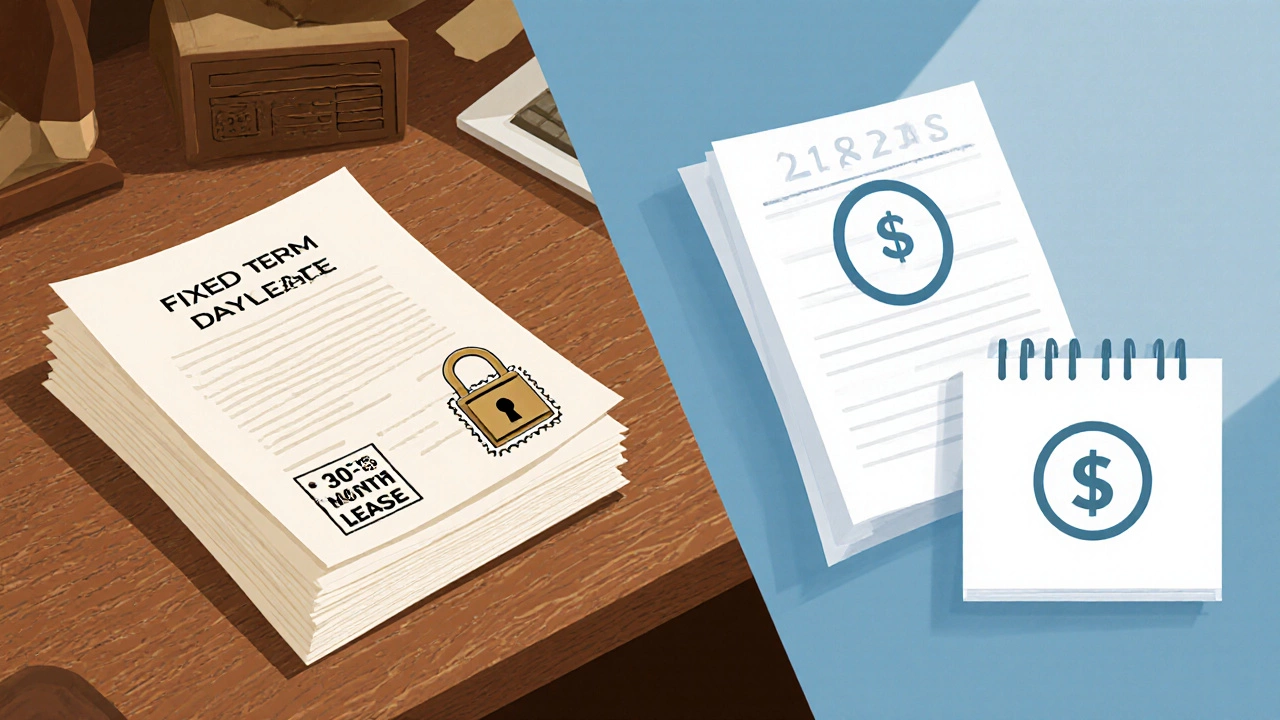Can a Virginia Landlord Raise Rent by $300? Legal Limits Explained

Oct, 19 2025
Virginia Rent Increase Checker
Check Your Rent Increase Notice
This tool helps you verify if your landlord's rent increase notice follows Virginia law. Enter your lease type and notice period to see if it's legally compliant.
Note: Virginia law requires written notice. Verbal notices are not legally valid.
When you get a notice that your landlord wants to add $300 to your monthly rent in Virginia, the first question is whether the law allows that jump. The short answer is: it depends on your lease type, the timing of the notice, and a few state‑level rules.
Key Takeaways
- Virginia does not cap the dollar amount of a rent increase, but proper notice is mandatory.
- For a month‑to‑month tenancy, a landlord must give at least 30 days' written notice before the rent change takes effect.
- If you have a fixed‑term lease, the rent stays the same until the lease expires, unless the lease itself allows a raise.
- Landlords cannot raise rent within the first year of a new lease unless the lease includes a specific clause.
- Tenants can negotiate, challenge improper notices, or seek relief through the Virginia Residential Landlord and Tenant Act.
Virginia Residential Landlord and Tenant Act is the state law that governs how landlords and tenants handle rent, notices, and lease terms in Virginia. It sets the baseline for what a landlord can and cannot do when it comes to changing the rent amount.
What the Law Says About the Amount You Can Raise
The law does not impose a fixed percentage or dollar cap on rent increases. That means a landlord could, in theory, raise the rent by any amount, including $300, as long as they follow the proper notice procedures.
However, there are practical limits:
- Excessive increases that appear to be retaliatory (e.g., after a tenant complains about conditions) can be challenged as a violation of the act.
- Local jurisdictions may have ordinances that impose additional caps or requirements, especially in designated “rent‑control” zones. Virginia has very few of these, but a few cities have enacted temporary rent‑stabilization measures in response to market spikes.
Notice Requirements - The Real Deal
Virginia law is crystal clear on notice periods. A landlord must provide written notice before the rent increase becomes effective. The length of that notice depends on the tenancy type:
| Lease Type | Maximum Increase Allowed | Required Written Notice |
|---|---|---|
| Fixed‑term (e.g., 12‑month lease) | None until lease ends, unless lease includes a raise clause | 30 days before lease expiration if raise is built into contract |
| Month‑to‑month | Any amount | 30 days |
| Rent‑increase due to tax, utility, or special assessment | Actual cost increase | 30 days |
The notice must be delivered in writing-certified mail, personal delivery, or any method the lease specifies. Email is acceptable only if the lease expressly allows it.

Fixed‑Term vs. Month‑to‑Month: Why It Matters
Understanding your lease structure is critical. In a fixed‑term lease, the rent amount is locked in for the duration of the contract. The landlord cannot raise the rent mid‑term unless the lease contains a “rent escalation clause.” Such clauses are rare in Virginia residential agreements but do exist in some newer developments.
In a month‑to‑month arrangement, the rent is considered a periodic payment. The landlord can propose any increase, but the 30‑day notice still applies. The new amount takes effect on the rent‑payment date that follows the notice period.
Common Exceptions and Special Situations
There are a few scenarios where a landlord may raise rent without the standard 30‑day notice:
- Utility Reimbursement: If the lease states the tenant pays for utilities and the utility rates increase, the landlord can pass those costs through with immediate effect, provided the lease mentions this.
- Tax or Assessment Changes: Real‑property tax hikes or municipal assessments can be added to rent, again only if the lease allows it.
- Lease Renewal Offers: When a lease expires, the landlord may offer a new lease with a higher rent. The tenant can accept, decline, or negotiate.
In all cases, the landlord must still give written notice of the new total rent amount. Trying to sneak in extra fees without clear communication can be deemed a violation.

How to Respond to a 0 Increase Notice
- Check Your Lease: Look for any clause that permits rent increases before the term ends. If none exists, the landlord cannot raise rent until the lease expires.
- Verify the Notice: Confirm it’s in writing, includes the effective date, and gives at least 30 days' notice. If the notice is shorter, you can point out the violation.
- Assess Market Rates: Use websites like Zillow or local listings to see if $300 is in line with comparable units. Sudden spikes far above market can be a negotiation point.
- Negotiate: Contact the landlord politely. Explain your findings and propose a smaller increase or a longer notice period. Many landlords prefer to keep good tenants rather than start a turnover.
- Document Everything: Keep copies of the notice, your lease, and any correspondence. If you need to involve a third party, this documentation will be essential.
- Seek Legal Help if Needed: If the landlord refuses to provide proper notice or raises rent in retaliation, you can file a complaint with the Virginia Department of Housing or consult a tenant‑rights attorney.
Checklist for Tenants Facing a Rent Increase
- Review lease for any rent‑increase clause.
- Confirm written notice includes date and amount.
- Count days to ensure at least 30‑day notice.
- Research comparable rents in your neighborhood.
- Prepare a polite negotiation email or letter.
- Save all communication for records.
- Know your rights under the Virginia Residential Landlord and Tenant Act.
Frequently Asked Questions
Can a landlord raise rent by any amount in Virginia?
Yes, there is no statutory cap on the dollar amount. The key limitation is the required written notice-usually 30 days for month‑to‑month tenancies.
What if my lease is for a year and my landlord wants to raise rent after six months?
Unless the lease includes a rent‑escalation clause, the landlord cannot change the rent until the lease ends. A mid‑term increase would be a breach of contract.
Is a verbal notice enough?
No. Virginia law requires written notice. Verbal statements do not satisfy the legal requirement.
Can a landlord raise rent because of higher property taxes?
Only if the lease specifically allows tax pass‑throughs. If the lease is silent, the landlord cannot add tax costs to your rent.
What agency handles rent‑increase disputes in Virginia?
The Virginia Department of Housing and Community Development accepts complaints, and tenants can also pursue civil action in small claims court.
Understanding the rules around a Virginia rent increase empowers you to protect your budget and negotiate fairly. Keep your lease handy, count the notice days, and don’t be afraid to ask questions or seek advice. A well‑informed tenant is a tenant who can avoid surprise hikes and maintain a stable home.